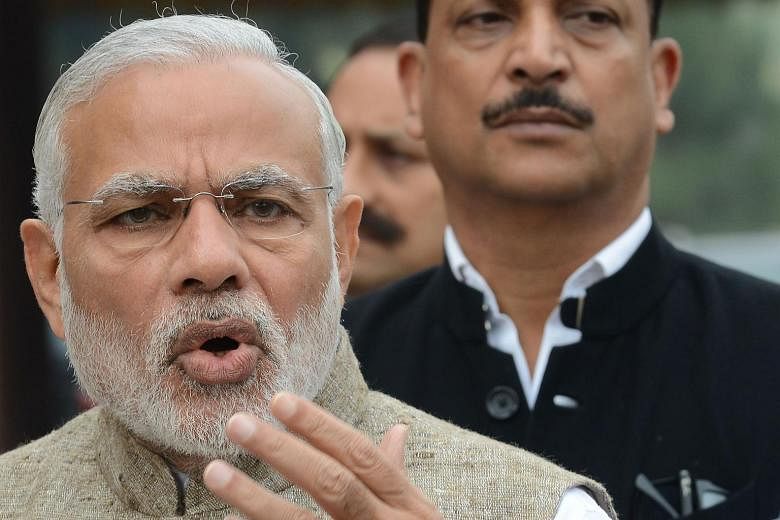Japan and China are in the race to build a high-speed rail network in India, a controversial project supported by Prime Minister Narendra Modi and the government but slammed by critics as wasteful.
The government is looking to build a 10,000km-long high-speed rail network, called the diamond quadrilateral, which connects four major cities, but the project has been slow going due to the high costs involved.
A top government panel looking after "innovative collaborations" is currently assessing a feasibility study conducted by the Japanese for a 505km bullet train corridor connecting the cities of Mumbai to Ahmedabad. The Chinese, meanwhile, were recently chosen to do a similar study for two other rail links, including a 1,200km Delhi to Mumbai stretch.
Officials have, however, dampened expectations that a high-speed rail network will be up and running soon, saying the project was "complex" and emphasising that no timeframe had been set for the project.
"It is a very complex process and a capital-intensive project. It will take time," said a railway spokesman.
The Indian railways network - Asia's second largest after China - remains a cheap source of transport, with 23 million people travelling every day on trains throughout the vast country.
The prices of tickets have been kept low to make them affordable even for the poor, but this has led to a lack of funds for the development or expansion of the network. This is in contrast to the boom in low-cost air travel.
For now, Japan - which recently lost out to China on a high-speed rail project in Indonesia - is seen to be ahead in India. Junior Railway Minister Manoj Sinha, in a written reply in Parliament, noted that Japan is the "only country to offer funding" .
Tokyo has offered a loan for 81 per cent of the cost for the Mumbai to Ahmedabad stretch which, according to the feasibility report by Japan International Cooperation Agreement, will cost 980 billion rupees (S$20.5 billion) over seven years.
The Japanese collaboration is expected to get a further boost when Prime Minister Shinzo Abe comes to India for a three-day visit starting Dec 11.
Analysts said Japan would be slightly concerned by China's involvement in India's bullet train plans.
"Japan would be a little bit concerned as China bagged the feasibility study (in September). They would have taken serious note. Infrastructure would be one of the important items between India and Japan. There is a competition and India can choose whoever gives the better deal," said Professor Lalima Verma, professor of Japanese studies at Jawaharlal Nehru University.
But not everyone in India has welcomed the high-speed rail, with the critics arguing that it was more necessary to upgrade existing infrastructure and improve safety in the current network instead of opting for a big bang project.
"Do we need to spend that amount of money to just cut journey hours from seven to three? There are lots of other things we need to do with the same kind of money and it will end up being more expensive than air travel," said Mr Ashok R. Datar, transport expert and chairman of Mumbai Environmental Social Network.
The government is also looking at introducing semi-high-speed trains or trains that run at a top speed of 160kmh. Next year, an express train will start running between Delhi and Agra, where the Taj Mahal is situated, that will cut travel time by half an hour to 105 minutes.
Still, supporters insist Indians would eventually take to the bullet train.
"Before the Delhi metro came, everyone used to say it's too much money, and now every city wants a metro. With the bullet train too, one line will have a demonstrative effect," said Mr Sumant Chak, director of international relations at the Asian Institute of Transport Development and a former railway official.

